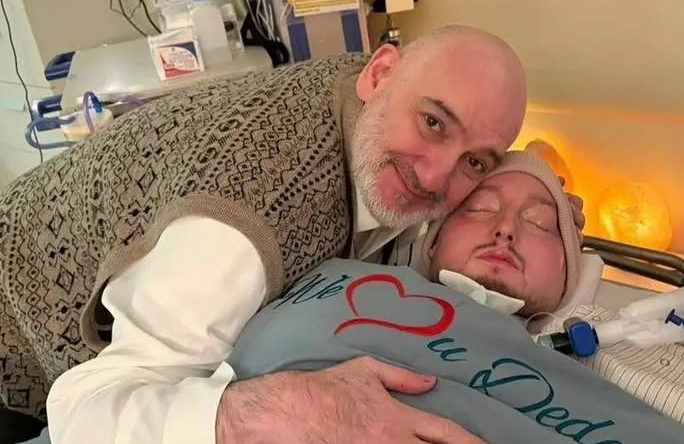The Extraordinary Story of Prince Khaled bin Talal Al Saud and His Son
Prince Khaled bin Talal Al Saud, a prominent member of the Saudi Royal family, is known for his unwavering commitment to his son, Prince Alwaleed bin Khaled bin Talal. This dedication has drawn global attention, especially after the recent passing of the prince at the age of 36. Known as “the sleeping prince,” Alwaleed was involved in a devastating car crash in London in 2005 while studying at a military college. The accident left him with severe brain trauma, resulting in a coma when he was just 15 years old.
Despite the medical advice to discontinue life support, Prince Khaled refused to give up on his son. He believed that there was still a chance for recovery, driven by both personal conviction and religious faith. In a statement, he expressed his belief that if God had intended for his son to die in the accident, he would already be in his grave. This determination to keep his son alive for nearly two decades has sparked intense public interest and debate.
A Family’s Unyielding Hope
Prince Khaled, who is the nephew of the late King Abdullah of Saudi Arabia and the brother of billionaire investor Prince Alwaleed bin Talal, holds significant influence within the royal family. Although not in the line of succession, he has been associated with charitable work and maintains a strictly observant Islamic lifestyle. His decision to keep his son on life support was deeply rooted in his beliefs, and he often emphasized his refusal to surrender to despair.
Throughout the years, any slight sign of movement, such as a finger twitch reported in 2019, was enough to fuel hope that his son might one day awaken. His wife, Princess Reema bint Talal, shared this belief, referring to their son’s spirit as still being present. Their faith in Allah’s will played a central role in their decision-making process.
The Legacy of the Sleeping Prince
For two decades, Prince Alwaleed remained under the care of physicians at King Abdulaziz Medical City in Riyadh, where he received round-the-clock treatment. His condition became a symbol of resilience and devotion, capturing the attention of people around the world. He became widely known as the “Sleeping Prince” and his story circulated frequently on social media platforms.
After his passing, the hashtag #SleepingPrince trended globally as thousands of people shared their condolences for the prince’s family. His funeral prayers were held at Imam Turki bin Abdullah Mosque in Riyadh, where many gathered to pay their respects.
Public Reaction and Global Attention
The family’s choice to keep Prince Alwaleed alive for such an extended period has been the subject of intense scrutiny. While some praised their unwavering hope and faith, others questioned the ethical implications of maintaining life support for so long. However, the family remained steadfast in their belief that they were honoring their son’s life and following divine guidance.
Prince Khaled’s journey as a father has become a powerful testament to love, perseverance, and the strength of faith. His story continues to resonate with people worldwide, highlighting the complex intersection of personal belief, medical ethics, and the human desire to hold onto hope in the face of adversity.
As the legacy of the “sleeping prince” lives on, it serves as a reminder of the profound impact one individual can have on the hearts and minds of many. The story of Prince Alwaleed and his father, Prince Khaled, remains a poignant chapter in the ongoing narrative of the Saudi Royal family.







